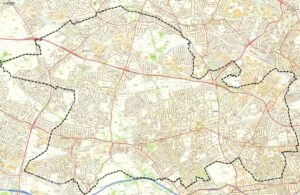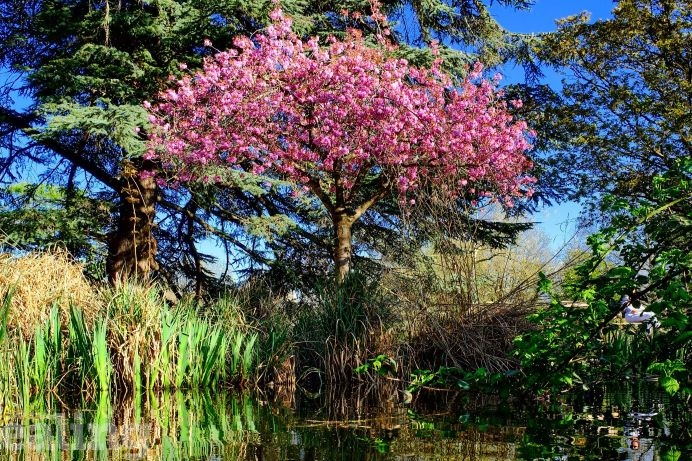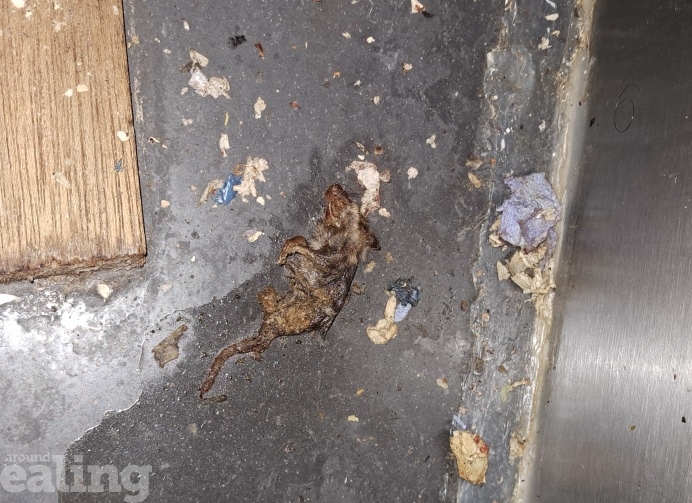Did you know that if you are lucky enough to own a driveway or front garden, you could have a powerful tool for climate action on your hands?
The borough has approximately 75,000 front gardens. But a survey as long ago as 2005 found that more than half were covered almost entirely in hard surfaces.
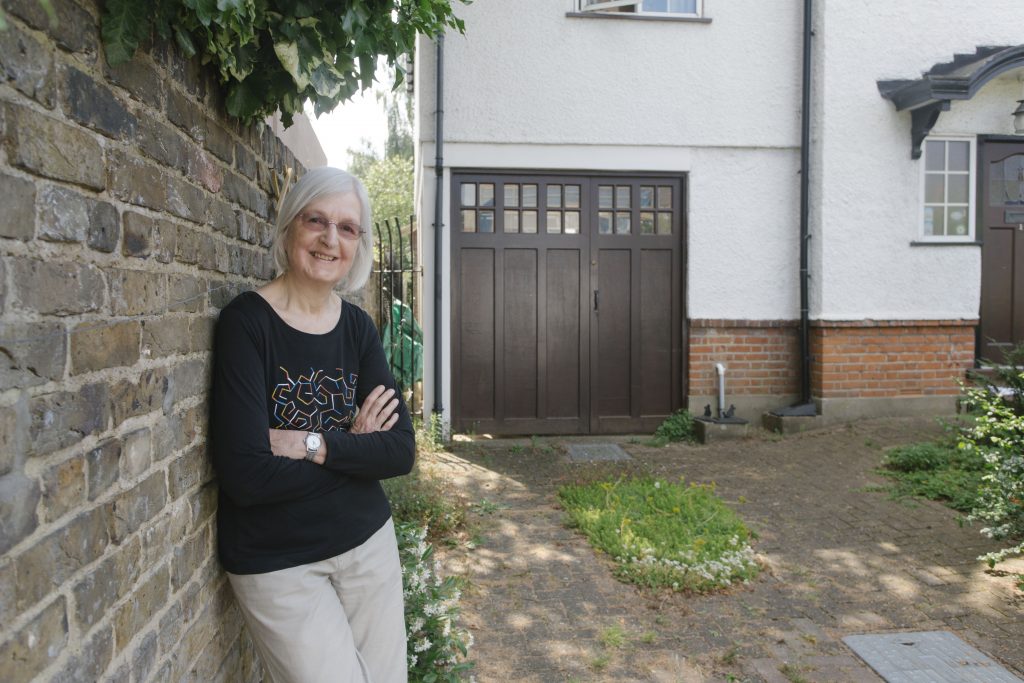
Christine Eborall of Ealing has long extolled the virtues of ‘greening’ your front garden or drive and has campaigned for it. The Mayor of London Sadiq Khan recently included the idea in the London strategy for climate action, in response to what has become a hard surface epidemic – when front gardens could actually be a force for good in the fight against the climate crisis. Something that Ealing Council is looking at as part of its climate action strategy.
Christine, who you can listen to in the video above, said: “Some roads have driveways or paved front gardens all the way down the street, on both sides of the road. It is effectively tripling the width of the road.
“And although electric vehicles being encouraged is a good thing, it is also presenting a problem. People want to park their cars in front of their homes to charge the cars overnight. It is understandable, but this will likely mean even more paved front drives. I’m not sure everyone is joining the dots.
“We need much more charging infrastructure across the country to make powering electric vehicles more viable anywhere at any time, so overnight charging doesn’t feel essential to owners. But we also need anyone thinking of paving their front garden or driveway to rethink the spaces. If you want to be green with an electric vehicle, then you should green your drive too.”
How Christine changed her front garden
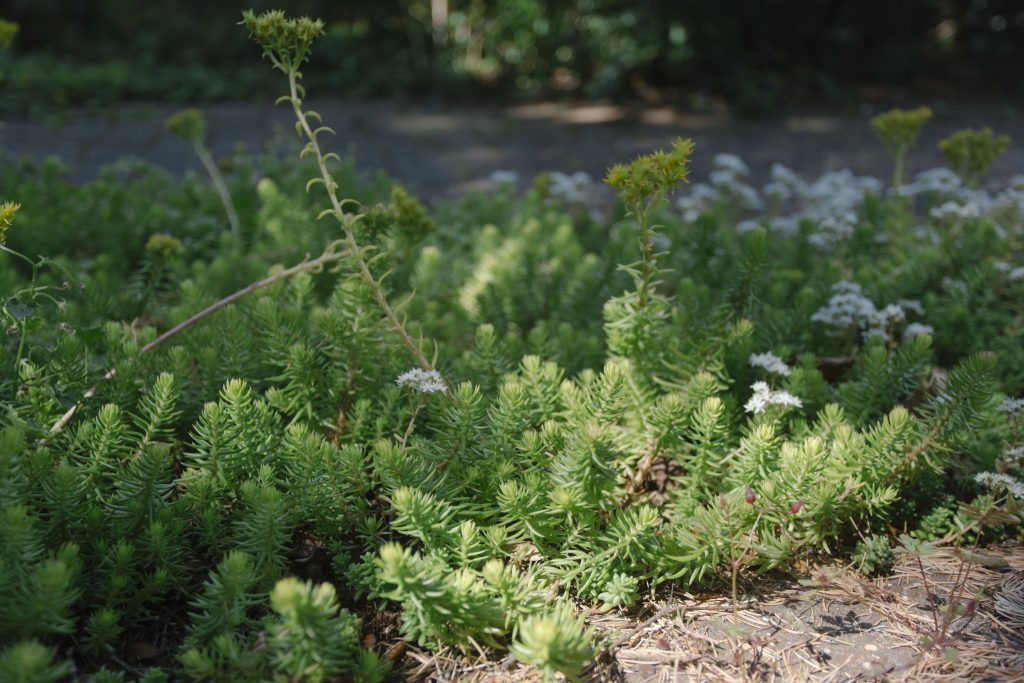
“When we moved here, we had a conventional front garden,” she said. “Then we decided to try an experiment – to let it go to see what would happen. And it seeded itself and grew its own way. A lot of the plants have just ‘arrived’ on the wind. And the advantage of that is that you know things that just arrive like that and then thrive have found an environment that is right for them and will require very little maintenance. We just pull up anything we don’t want or need and, apart from a trim here and there when required, we let the rest of it do its own thing.”
A gap in the brick driveway was deliberately created and planted with stonecrops and other low-growing plants, while the edges have become seeded with grasses.
“It’s terribly easy to do – the plants we used are fine to grow under a car,” explained Christine. “These and the other plants help reduce run-off from rain, help with cooling the surface and help with biodiversity by providing food for the natural cycle, with seeds for birds and nectar for bees and other pollinating insects. We have sparrows coming to eat the seeds the grass produces and lots of bees visiting the bushes.”
‘So many benefits’
“There are so many benefits to greening,” said Christine. “And it is more important to society as a whole than how your driveway looks. It can’t always look neat and tidy. We all just need to get over it.
“We have all seen the effects of floods in Germany recently and the extreme heat in North America causing mayhem.
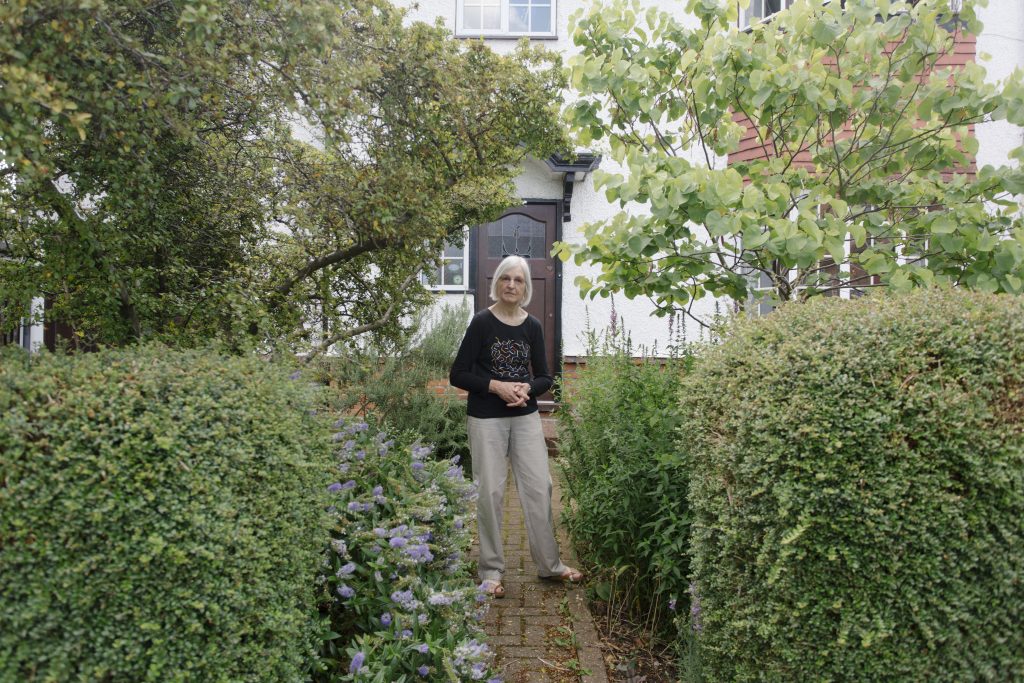
“Hard surfaces can’t cope with increasingly common torrential downpours. But greening your front garden or drive absorbs rainwater and reduces run-off, meaning the risk of flooding is reduced. For a long time there has been concern that water pollution, and erosion, in the River Brent had largely been caused by run-off from local hard surfacing – particularly from front drives.
“Hard surfaces reflect the heat back and make it hotter in built-up areas including inside people’s houses, which is called the ‘heat island effect’, whereas gardens and greening have a significant cooling effect.
“Gardens provide – by far – the most support for nectar production in towns and cities. Much more than verges and parks. And front gardens are as useful as any garden space. People are starting to realise we need to do this to support the pollinating insects who are so crucial for our own food production. By doing so, we are also creating habitats for other insects and food for birds.
“The plants also help to absorb air pollution – especially if you have any hedges, bushes or trees – and the plants and soil also absorb carbon dioxide. So, greening is helping to clear the air we breathe and cut our carbon footprint into the bargain.
“And greening even cuts the cost and time involved in maintaining a hard surface. A greened area is largely self-sustaining and resilient – you don’t need to do much. There is no need for toxic weedkiller or cleaning products, and no need to replace or repair it every few years like you do with hard surfaces.”
How do you do it?
Christine’s top tips:
- First of all, it does not have to be a ‘proper garden’ – and it could just be a small island where the wheels of your car don’t go
- It can be as cheap and simple, or as elaborate, as you want it to be
- Remove some, or all, of your hard surface
- If you remove hard surface in the area you normally park, put down a reinforced mesh there instead, which is relatively inexpensive – leave the soil or underneath to do its own thing
- Any area you don’t use for parking, you could leave as soil or green
- See what happens – you might be surprised what seeds and plants ‘arrive’
- Or, you might like to buy a few low-growing plants to put in; if you have space, you could even put in flowering shrubs which are very attractive and good for nectar
- Take a look on the front gardens pages of the Royal Horticultural Society (RHS) and the London National Park City websites for more tips and advice.

